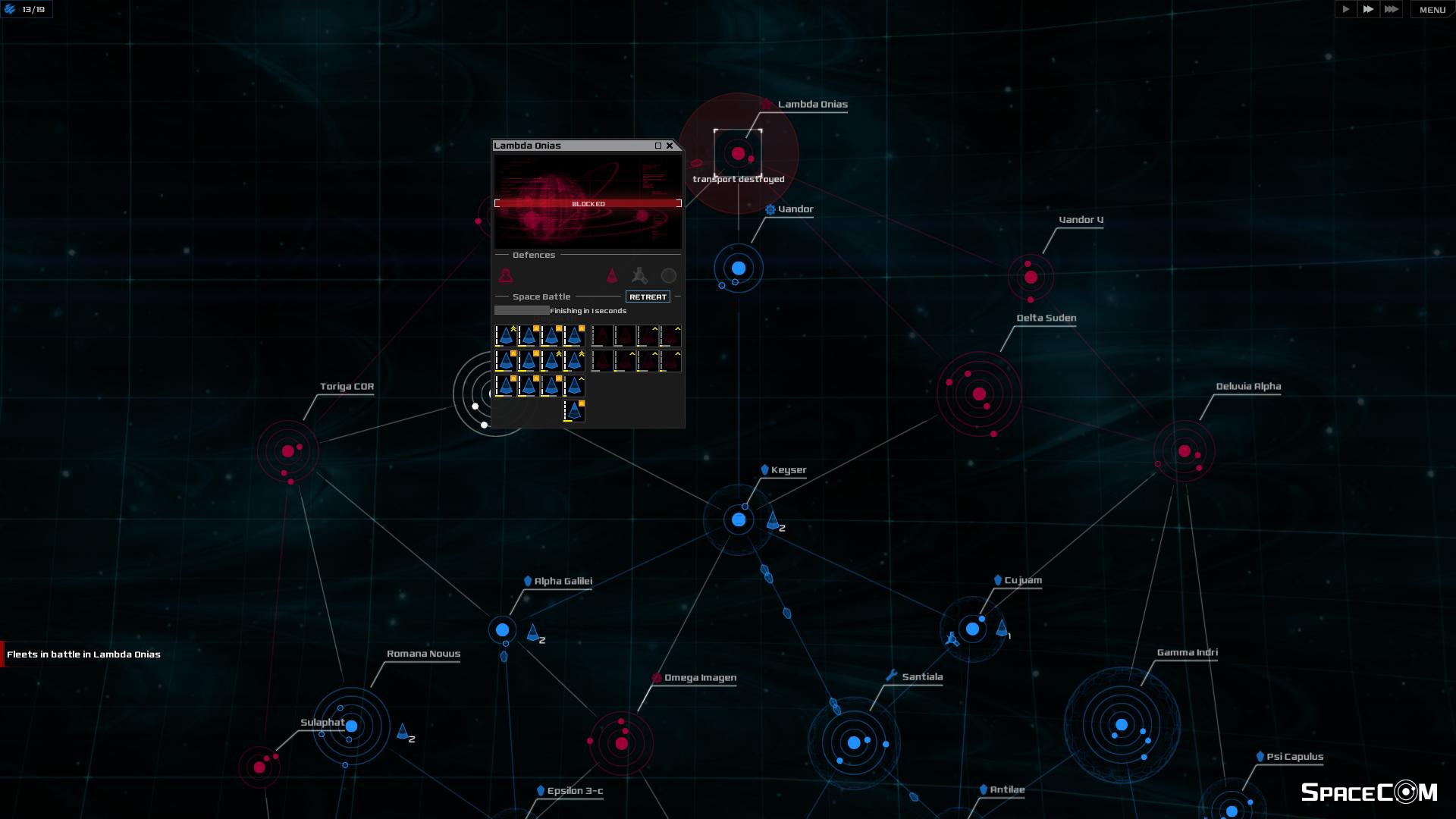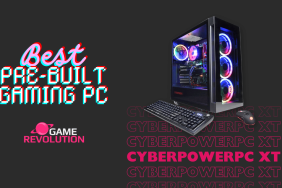Spirit of a board game.
It can be tough to tell when a particular facet of something has been implemented by choice or by force. For example, a filmmaker with no pre-existing reputation releases an abstract film that's extremely simple and short. Is it art? Or is it amateur? Of course, something of that nature can easily be both, and Spacecom is a game that faces a similar conundrum. The simplicity of its strategic space-combat is undoubtedly a conscious choice by its developers, yet it's that very simplicity that lends itself well to quick matches and unexpected depth that reveals itself over time. The art style, on the other hand, strikes me as less of a calculated move—you know what they say about programmer art. Luckily, both the visual and technical bits of Spacecom lend to its charm, and I had a startlingly fun time playing as a result.
Spacecom is a strategy title set amid the vast nothingness of outer space, and it’s your job to start filling that space immediately upon playing. Actually, your real goal is to conquer, but to do so you’re going to need an army. There are three spacecraft types at your disposal, each with a particular functional attunement, and learning their strengths is critical to any and all success you intend on having. This may sound intimidating, but it’s actually not—managing your fleet is one of only a few systems the game asks you to sufficiently commit to memory.
The three ship types—Battle, Siege, and Invasion—are easy to learn and slightly less easy to master, and management of both fleets and resources is Spacecom’s main draw when it comes to playing commander. Battle ships are used as combat units and can eliminate enemy spacecraft quicker than the other two. Invasion ships help you overtake and capture new regions of space, while Siege ships can actually blast entire planets out of existence. I’d feel bad about that, but the basic geometric shapes that comprise Spacecom’s graphics pulled me out of my horrific mental imagery just enough to be fine with planetary annihilation. The inhabitants of these planets would have to be smaller than a single pixel anyway.
As your empire grows you’ll need to defend it, and Spacecom handles aegis of property in a similarly streamlined fashion. Troops on the ground can protect the stars and territories you acquire, as can force fields, shields, and defense grids that, as you might expect, are more costly to implement. Still, you never feel as if anything you need is terribly out of reach, and given that most matches can be completed within an hour, losing never stings enough to break your spirit.
Spacecom’s single-player campaign began to bore me before I completed every mission, but multiplayer is where things really heat up. You can play with friends easily via Steam, and though you might think Spacecom’s lack of limitless depth might cripple it when multiple players are thrown into the mix, I was surprised to find the opposite is true. Play Spacecom with a few pals and a persistent Skype connection, and you’ll be laughing and screaming like it were family game night. Unlike family game night, though, where something like Risk can takes weeks or a month, Spacecom allows for multiple matches in one sitting. They’re just long enough to be engaging, yet short enough to tempt with a classic “just one more game.”
Though simplicity is largely a boon for Spacecom, it does have the negative effect of shortening the amount of time you’re likely to continue playing its single-player missions. For the most part I’m burnt out on them already, and that’s after just half a dozen or so hours (not including multiplayer). The visual style doesn’t help either; though it’s effective and gets out of the way when playing with friends, I’d gladly accept visual flourishes or effects to keep things interesting when playing by myself.
That said, there are achievements to strive for, so if 100% completion alone motivates you, then you may not have the same issues with single player that I’ve experienced. Either way, you’re going to want to experience Spacecom with friends. The $15 price tag may seem a bit steep considering its minimalism, but trust me—it's right in the sweet spot when you consider the replay value of multiplayer alone.
Spacecom is still fun if you’re not a social gamer, but if you plan to play by yourself exclusively I’d wait and see if it goes on sale. Additionally, its base mechanics can be mastered in just a few hours, which means strategy junkies may yearn for more deliberate depth that simply isn’t there. Still, if fun is your main motivator and you’ve got a few friends who agree, Spacecom offers a host of unseen depth that only human opponents can unlock. Who cares if my fleet of deadly vessels are just colorfully shaded triangles? I’d rather use my imagination anyway.
-
Enjoyable space-battle matches can be completed in under an hour
-
Strategic elements are simple yet substantial
-
Multiplayer is a blast and adds replay value
-
Plenty of achievements if that’s your thing
-
Strategy wears thin in single-player mode
-
If you don’t care about achievements, playing alone gets old
Spacecom Review
-
Spacecom Review #1
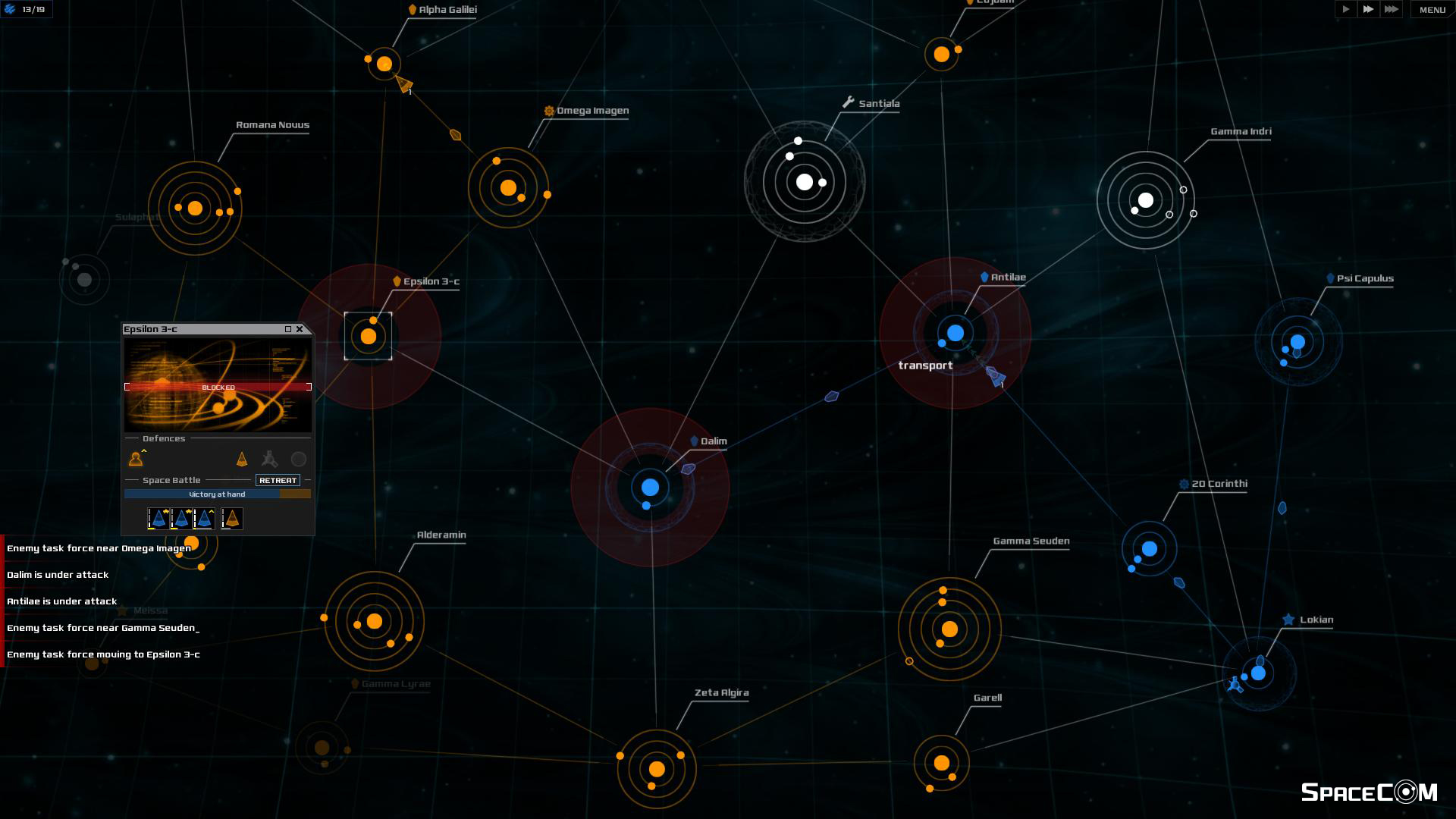
-
Spacecom Review #2
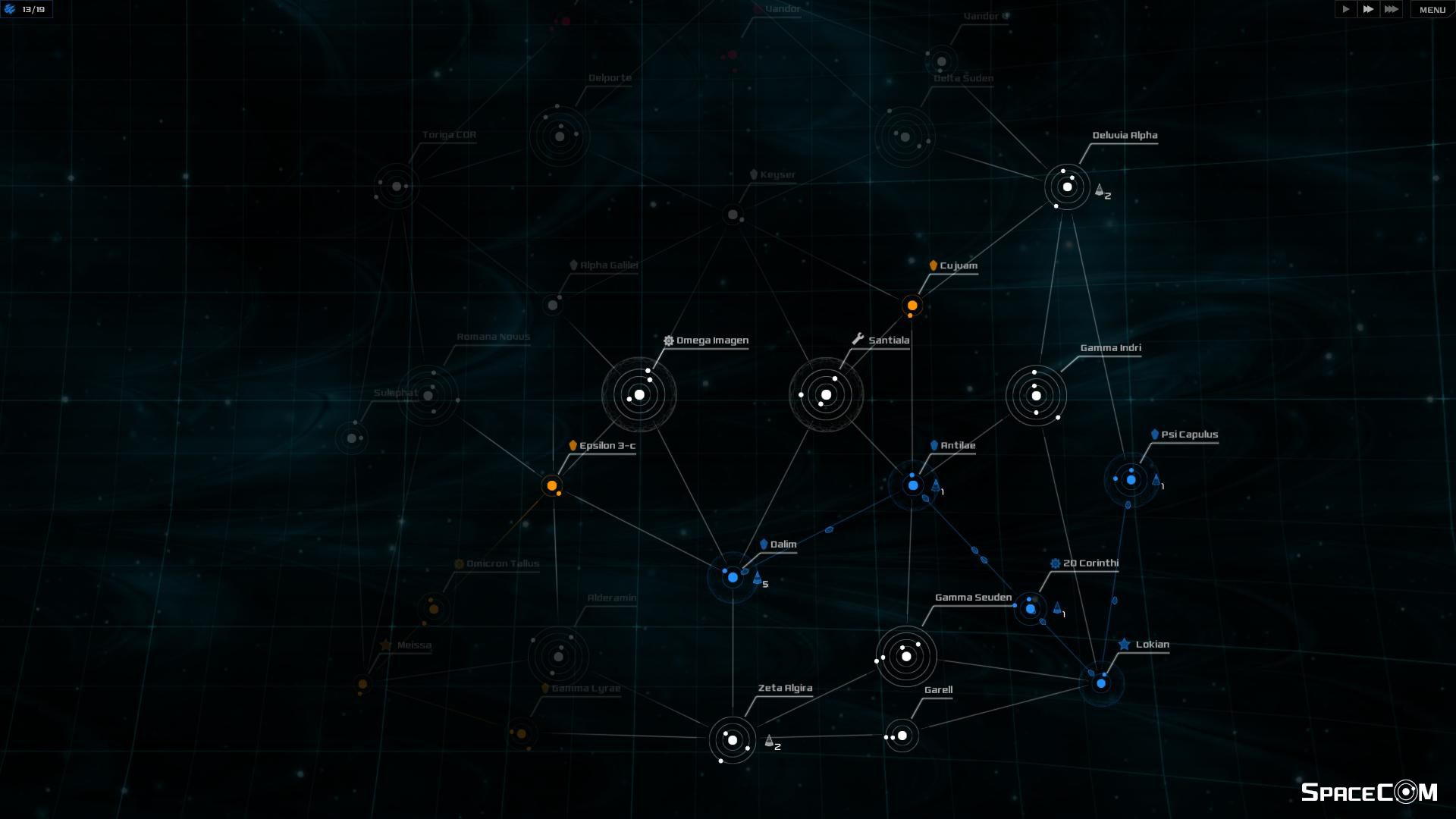
-
Spacecom Review #3
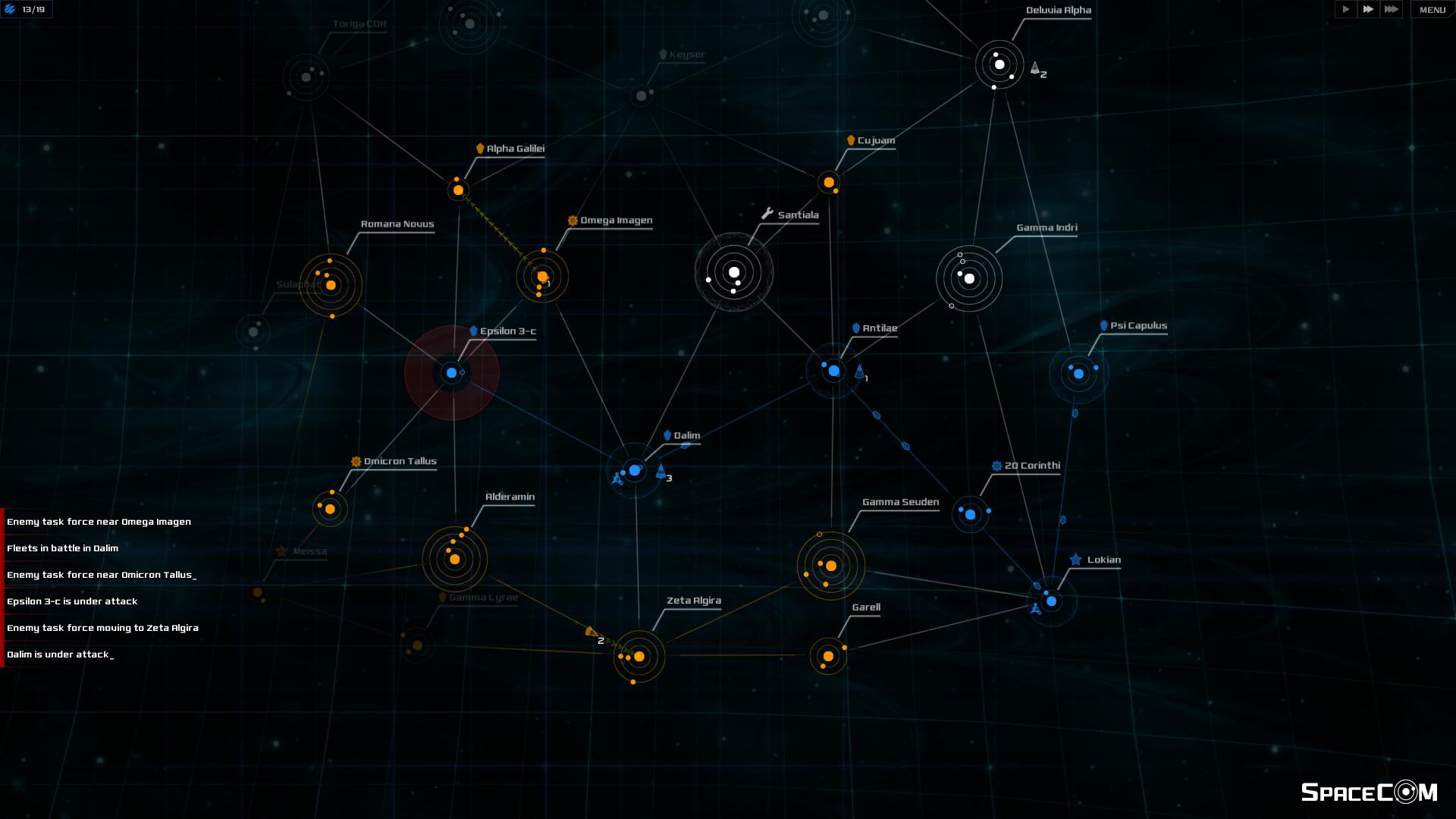
-
Spacecom Review #4
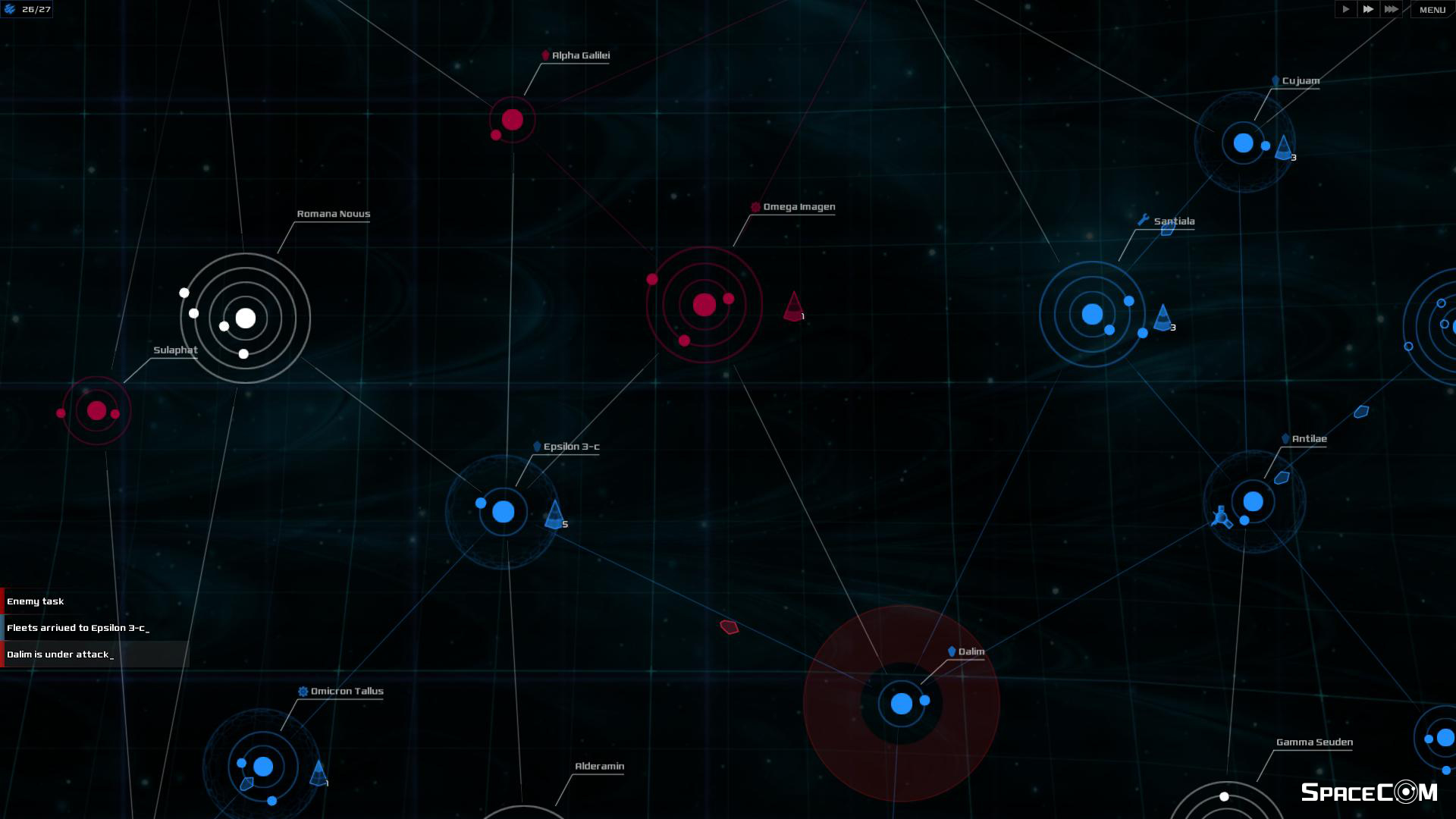
-
Spacecom Review #5
